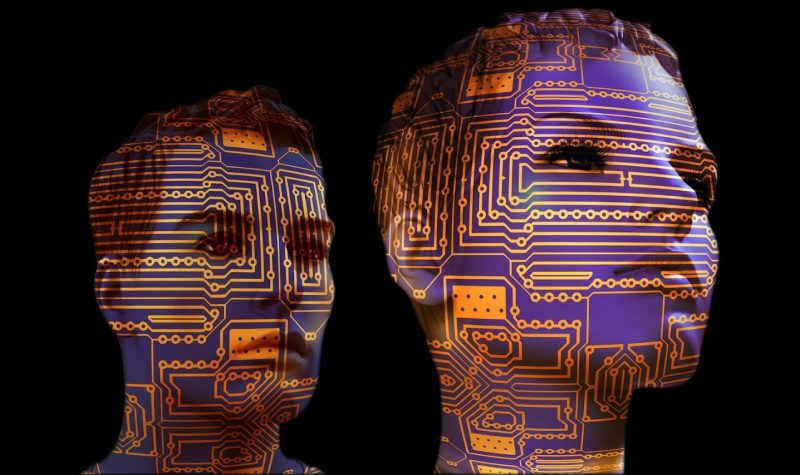
Artificial intelligence (AI) has emerged from the realm of science fiction to become an integral part of our daily lives. From the algorithms that curate our social media feeds to the self-driving cars navigating our streets, AI is rapidly transforming society at an unprecedented pace. However, this transformative power brings with it a complex web of ethical considerations that demand careful scrutiny and thoughtful discourse.
AI and Helping Change
The online gambling industry has made significant strides in promoting responsible gaming practices. However, initiatives like GamStop, while well-intentioned, can sometimes feel overly restrictive, inadvertently pushing players toward alternative platforms.
For slot players, this has become quite the phenomenon as many of them now prefer slot games not on GamStop as these provide less restrictive gaming options. According to iGaming expert Chris Jackson, they additionally provide a range of benefits like faster payouts and streamlined registrations. This phenomenon can occur when players desire more flexibility in managing their gaming habits, seeking experiences beyond the strict limitations imposed by self-exclusion schemes.
However, contemporary iGaming platforms are also increasingly leveraging the power of AI to empower players with greater control over their gaming experiences. AI-powered tools can personalize gameplay by identifying individual play styles and setting customized limits on deposit amounts, session durations, and bet sizes.
By embracing innovative AI-driven solutions, the industry can strike a balance between responsible gaming and player autonomy. In turn, this helps foster a more sustainable and enjoyable gaming environment for all.
Bias in the Algorithm: The Ghost in the Machine
AI systems, like mirrors reflecting reality, inherit the biases embedded within the data they are trained on. This can result in discriminatory outcomes, where AI algorithms inadvertently perpetuate and even exacerbate existing social inequalities.
For example, facial recognition systems have demonstrated bias in identifying individuals of certain ethnicities, leading to misidentification and wrongful arrests. Similarly, AI-powered recruitment tools may unintentionally favor candidates from specific backgrounds, hindering opportunities for underrepresented groups.
Addressing these biases necessitates a multifaceted approach. This includes meticulously curating training data to minimize bias, rigorously testing AI systems for discriminatory outcomes, and developing algorithms that are more equitable and inclusive in their design. Ultimately, the goal is to ensure AI systems serve as tools for positive social change, rather than inadvertently amplifying existing inequalities.
The Job Market: A Brave New World of Work
The rise of AI is poised to have a profound impact on the job market, displacing workers in certain sectors while creating new opportunities in others. Automation is already transforming industries, such as manufacturing and transportation, leading to concerns about job losses and economic disruption.
However, AI also presents the potential for new forms of employment, such as AI trainers, data analysts, and ethical AI specialists. These roles will be crucial in developing, maintaining, and ensuring the responsible use of AI technologies. To mitigate the potential negative impacts of AI on employment, it is crucial to invest in education and training programmes that equip workers with the skills necessary to thrive in an AI-powered economy.
This includes fostering lifelong learning and promoting adaptability in the face of rapid technological change. Furthermore, social safety nets and robust social support systems will be essential to assist those whose jobs are displaced by automation, ensuring a just and equitable transition for all.
The Autonomous Dilemma: Who is Responsible?
As AI systems become increasingly autonomous, the question of responsibility becomes increasingly complex. Who is liable when an autonomous vehicle causes an accident? Who is accountable when an AI system makes a harmful decision? These are critical questions that require careful legal and ethical consideration.
Establishing clear frameworks for accountability is essential to ensure that AI systems are developed and deployed responsibly. This may involve exploring legal personhood for AI, developing robust insurance mechanisms, and ensuring that human oversight remains a crucial component of AI systems.
The Existential Threat: Navigating the Singularity
While the immediate concerns of AI ethics may revolve around issues such as bias and job displacement, the long-term implications of advanced AI raise profound existential questions. The possibility of superintelligence, where AI surpasses human intelligence in all aspects, raises the specter of unforeseen consequences.
Will such a superintelligence be benevolent or malevolent? Will it align with human values or pursue its own goals, potentially leading to unintended and catastrophic outcomes? These are complex questions that require ongoing philosophical and scientific inquiry. Engaging in open and honest dialogue about these long-term risks is crucial to ensure that the development of AI remains aligned with human values and serves the betterment of society.
Conclusion
The ethical considerations surrounding AI are multifaceted and complex, demanding a nuanced and multidisciplinary approach. Addressing these challenges requires collaboration between researchers, policymakers, ethicists, and the public.
By fostering open dialogue, promoting responsible development, and ensuring that human values remain central to the AI revolution, we can harness the transformative power of AI for the betterment of humanity while mitigating the potential risks. The future of AI rests on our ability to navigate this ethical tightrope, ensuring that this powerful technology is used for good and not for evil.
